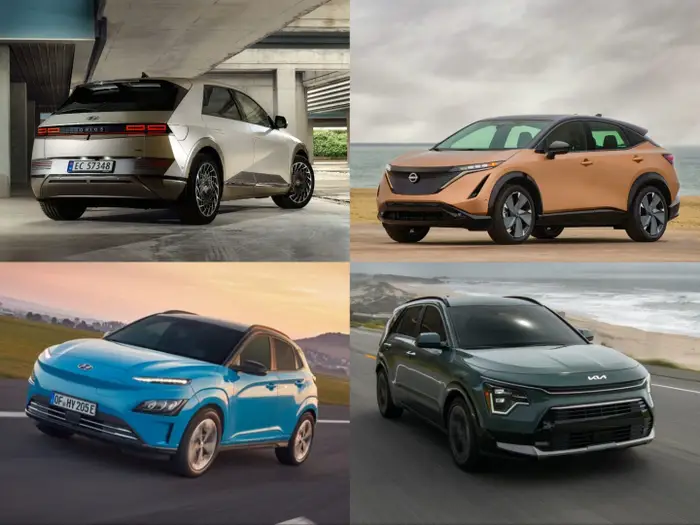In an era where sustainability and cutting-edge technology collide, electric vehicles (EVs) have transitioned from niche curiosities to mainstream contenders. For budget-conscious buyers, the prospect of owning an electric car offers not only savings at the pump but also lower maintenance costs, attractive government incentives, and the satisfaction of reducing one’s carbon footprint.
Yet, the expanding range of models on the market can overwhelm shoppers who seek the best combination of price, performance, range, and features. This comprehensive guide dives into the top 10 electric cars that deliver exceptional value for buyers mindful of their wallet, arming you with the insights needed to make an informed decision without compromising on quality or driving experience.
Why Affordable Electric Cars Matter
Electric vehicles have revolutionized personal transportation by replacing gasoline engines with efficient electric motors. Beyond the environmental benefits of zero tailpipe emissions, EVs promise lower operating expenses. Electricity is generally cheaper than gasoline on a per-mile basis, and electric motors require less frequent servicing than internal combustion engines.
However, the sticker price of EVs can still intimidate budget shoppers. With rising fuel costs and tightening household budgets, demand for entry-level electric cars that balance affordability and features is at an all‑time high. By choosing a model that qualifies for federal tax credits, state rebates, or utility programs, buyers can further reduce their net cost. Moreover, as battery technology improves and economies of scale kick in, the cost of entry for electric mobility continues to decline, making now an opportune time to explore wallet-friendly options.
What to Look for in a Budget-Friendly Electric Car
When evaluating EVs on a budget, focus on four key criteria: upfront price, driving range, charging infrastructure compatibility, and available incentives. Upfront price determines your initial outlay and potential financing terms. Range is critical for practicality; even city drivers benefit from a buffer beyond daily commute needs. Compatibility with fast-charging networks such as CCS, CHAdeMO, or Tesla’s Supercharger via adapter ensures long‑distance flexibility.
Lastly, federal and local incentives ranging from tax credits of up to $7,500 to HOV-lane access and discounted home charger installation can significantly lower your effective cost. In the sections that follow, each model’s strengths, range, pricing, and incentives are analyzed to uncover the best deals for savvy shoppers.
1. Nissan Leaf
Performance and Range
The 2025 Nissan Leaf remains a stalwart in the affordable EV segment. With two battery options—a 40 kWh pack delivering up to 150 miles of EPA-estimated range and a 62 kWh pack extending to 226 miles—the Leaf suits both urban commuters and weekend travelers. Its 147 horsepower motor offers smooth acceleration and a responsive driving feel, while a low center of gravity ensures balanced handling.
Pricing and Deals
The base Leaf S starts around $29,990, making it one of the least expensive EVs on the market. Buyers who qualify for the full $7,500 federal tax credit can reduce their net cost to just over $22,000. Many states, including California and New York, layer additional rebates up to $2,500, and select utilities offer discounted rates for overnight charging. Certified pre-owned Leaf models further extend affordability, often priced under $20,000 with battery health warranties intact.
Pros and Cons
The Nissan Leaf’s advantages include proven reliability, widespread dealer network, and standard features like Apple CarPlay, Android Auto, and Nissan Safety Shield. However, the design is aging compared to newer rivals, and the lower-range version may not satisfy drivers with longer daily commutes. Overall, its combination of price, incentives, and features make it an excellent choice for budget buyers entering the EV world.
2. Chevrolet Bolt EV
Performance and Range
Chevrolet’s Bolt EV delivers an impressive 259-mile range from its 66 kWh lithium-ion battery, rivaling models that cost significantly more. Its 200 horsepower motor yields brisk acceleration, achieving 0-60 mph in around 6.5 seconds. The Bolt’s compact dimensions enhance maneuverability in tight urban environments.
Pricing and Deals
The Bolt EV’s MSRP starts at $26,500, before incentives. After the maximum federal tax credit, the effective price can dip below $19,000. State rebates and utility incentives can shave off another $1,000 to $2,000. Chevy also periodically offers discounted lease deals and cashback offers, making the Bolt EV a top contender for drivers seeking strong range at an entry-level price.
Pros and Cons
Its long range and strong performance set the Bolt EV apart. The interior features an 8-inch touchscreen, wireless smartphone charging, and a suite of driver-assist technologies. Drawbacks include a less refined ride over rough roads and limited rear-seat headroom. Nonetheless, the Bolt EV’s mix of range, performance, and aggressive pricing secures its spot on this list.
3. Mini Cooper SE Electric
Performance and Range
The Mini Cooper SE Electric embodies iconic design and go-kart-like handling. Its 32.6 kWh battery delivers a modest 110-mile range—suitable for daily city driving. The electric motor provides 181 horsepower and 199 lb-ft of torque, giving the SE a zippy personality.
Pricing and Deals
With an MSRP of $29,900, the Cooper SE qualifies for up to $7,500 in federal tax credits, reducing the out-of-pocket cost to around $22,400. Some states, including Maryland and Massachusetts, offer additional rebates up to $1,500. As a premium-branded model, Certified Pre-Owned (CPO) SEs can be found in the low $20,000 range, appealing to buyers who appreciate style and driving engagement.
Pros and Cons
The Mini’s fun-to-drive dynamics, upscale cabin materials, and unique styling make it a standout. Limited range and a firm ride may deter some buyers, and cargo space is tight. Yet for urban enthusiasts who prioritize driving feel over maximum range, the Cooper SE Electric offers compelling value.
4. Hyundai Kona Electric
Performance and Range
Hyundai’s Kona Electric combines practicality with efficiency. Its 64 kWh battery provides up to 258 miles of range, while a 201 horsepower electric motor delivers smooth acceleration. The Kona’s raised ride height and crossover body style offer a versatile driving experience.
Pricing and Deals
The Kona Electric starts at $33,350, but eligibility for the full $7,500 federal credit and state incentives can reduce the effective cost to approximately $25,850. Hyundai dealers often include complimentary maintenance packages or discounted charging station installation, adding to the overall value.
Pros and Cons
Strengths include a comprehensive infotainment system, advanced safety features like blind-spot monitoring and forward collision warning, and ample interior space. Drawbacks center around fewer fast-charging stations compatible with its CCS port and a higher initial MSRP. Overall, the Kona Electric’s range, features, and incentive support justify its price among budget-conscious buyers.
5. Kia Niro EV
Performance and Range
Nearly identical to the Kona Electric under the skin, the Kia Niro EV shares the same 64 kWh battery and 239-mile range rating. A 201 horsepower motor propels the Niro with confident responsiveness, and its crossover footprint offers generous cargo volume.
Pricing and Deals
The Niro EV’s MSRP starts at $33,060. Federal tax credits and state rebates can bring this figure down to around $25,560. Kia’s loyalty and conquest rebates, when available, further enhance affordability. Additionally, many dealers bundle free fast-charging credits for networks like ChargePoint or EVgo.
Pros and Cons
The Niro EV’s practical cabin, user-friendly infotainment, and strong warranty coverage (10-year/100,000-mile powertrain) are major draws. Slightly higher price and occasional software glitches reported in early builds are minor concerns. For drivers seeking crossover versatility without sacrificing range, the Niro EV offers a compelling package.
6. Volkswagen ID.4
Performance and Range
The Volkswagen ID.4 represents VW’s first global electric platform, featuring a 62 kWh battery for 209 miles of range and an available 82 kWh pack boosting range to 275 miles. Its rear-wheel-drive configuration provides balanced handling, while a 201 horsepower motor ensures adequate performance.
Pricing and Deals
The starting MSRP for the ID.4 is $38,995. After full federal tax credit, the net price drops to $31,495. Many dealerships offer lease deals under $300 per month with minimal down payment, and state incentives up to $2,000 can further reduce costs. VW’s 3-year, 36,000-mile maintenance plan is included on new purchases.
Pros and Cons
The ID.4’s spacious interior, intuitive controls, and quiet ride appeal to families. Slower DC fast-charging speeds compared to some rivals and a higher base price limit its attractiveness for the strictest budget shoppers. However, its blend of space, range, and brand reliability merits its inclusion.
7. Tesla Model 3 Standard Range Plus
Performance and Range
Although Tesla is renowned for premium performance, the entry-level Model 3 Standard Range Plus offers 272 miles of range and 0-60 mph acceleration in 5.3 seconds. Its minimalist interior and access to Tesla’s Supercharger network elevate ownership convenience.
Pricing and Deals
At $38,490, the Model 3 Standard Range Plus is pricier than most entries here but qualifies for point-of-sale incentives in select states and potential regional utility rebates. Tesla’s over-the-air updates ensure the vehicle improves with time, preserving its value longer than many competitors.
Pros and Cons
The Supercharger network, high resale value, and cutting-edge autopilot features stand out. The minimal interior and higher price point may outweigh benefits for some. Nevertheless, for buyers seeking proven charging infrastructure and solid range in a sleek package, the Model 3 remains a top contender.
8. Chevrolet Bolt EUV
Performance and Range
The Bolt EUV builds on the Bolt EV platform with a roomier cabin and a slightly detuned motor producing 174 horsepower. Its 247-mile range and available Super Cruise hands‑free driving technology differentiate it in the affordable crossover segment.
Pricing and Deals
With an MSRP of $27,800, the Bolt EUV nets out to around $20,300 after federal tax incentives. Additional state programs can further reduce costs, and lease promotions often undercut rival crossover EVs.
Pros and Cons
A spacious rear seat, modern infotainment system, and Super Cruise option are highlights. Slightly reduced motor output and a less engaging driving feel compared to the standard Bolt EV are minor trade-offs. For families needing extra space, the Bolt EUV stands out on value.
9. Ford Mustang Mach-E Select
Performance and Range
The Mustang Mach-E Select is Ford’s entry-level trim, offering 266 miles of range from a 75.7 kWh battery and 266 horsepower in rear-wheel drive configuration. Its sporty dynamics and iconic nameplate attract buyers seeking a performance image on a budget.
Pricing and Deals
The Mach-E Select’s MSRP of $42,895 is higher than most here, but incentives and competitive lease rates make it attainable. Federal credits and state rebates can lower net cost by up to $10,000. Ford Pass Rewards members often enjoy bonus incentives for charging and maintenance.
Pros and Cons
Its engaging handling, premium interior, and comprehensive technology suite impress reviewers. The higher starting price challenges pure budget criteria. However, for buyers who prioritize style and performance with reasonable incentives, the Mach-E Select offers unique appeal.
10. Hyundai Ioniq 5 SE Standard Range
Performance and Range
Hyundai’s Ioniq 5 has made waves for its ultra-fast charging capability and retro-futuristic design. The SE Standard Range model features a 58 kWh battery delivering 220 miles of range and 168 kW (225 horsepower) motor output.
Pricing and Deals
Starting at $41,450, the Ioniq 5 SE qualifies for the full federal credit and many state incentives, bringing the net price to around $33,950. Hyundai occasionally includes complimentary charging credits and home charger installation packages to sweeten the deal.
Pros and Cons
The Ioniq 5’s spacious interior, rapid charging (10–80% in 18 minutes on a 350-kW charger), and innovative design set it apart. Higher price and rare discount programs limit its appeal to only the most tech-savvy buyers who value charging speed over cost. Still, for cutting-edge features on a tighter budget than luxury EVs, the Ioniq 5 SE holds strong value.
How to Find the Best Electric Car Deals
Purchasing an electric car at the best possible price involves a multi-pronged approach. Start by identifying federal tax credits and state rebates for which you qualify. Next, explore manufacturer programs: lease specials, loyalty rebates, and dealer incentives can drastically reduce costs. Don’t overlook utility company offers for discounted home charger installation or preferential off-peak rates.
Timing is crucial: end-of-quarter and end-of-model-year sales events often yield deeper discounts as dealerships clear inventory. Finally, consider purchasing certified pre-owned EVs; many come with extended warranties on the battery and powertrain, delivering like-new performance at a fraction of the price. By combining multiple incentives and negotiating based on total cost of ownership rather than MSRP alone, budget-minded shoppers can unlock significant savings.
Charging Considerations for Budget Buyers
For budget shoppers, the total cost of ownership extends beyond purchase price. Installing a Level 2 home charger typically costs $500 to $1,200, though some utility rebates can offset this expense. Research local charging networks and evaluate membership programs: some offer discounted kWh rates or free charging credits.
If your daily driving rarely exceeds 100 miles, a smaller battery pack may suffice, reducing purchase price. On-road, public DC fast-charging is accelerating in availability; however, budget EVs may charge at slower rates. Factor in charging speed when planning long trips, and consider vehicles with adaptive charging standards or adapter availability to maximize access and minimize wait times.
The electric vehicle market
The electric vehicle market has matured rapidly, offering budget-conscious buyers an unprecedented array of options. From the dependable Nissan Leaf and cost-effective Chevrolet Bolt EV to the sporty Mini Cooper SE and innovative Hyundai Ioniq 5, there is an EV to fit nearly every driving profile and price point. By combining manufacturer deals, federal tax credits, state rebates, and smart timing, shoppers can secure a purchase price that rivals comparable gasoline vehicles while reaping the long-term benefits of lower fuel and maintenance costs.
As charging infrastructure continues to expand and battery costs fall, the appeal of electric cars will only grow stronger. Armed with this guide, budget-minded buyers can confidently navigate the electric landscape and drive away in an eco-friendly vehicle without breaking the bank.




